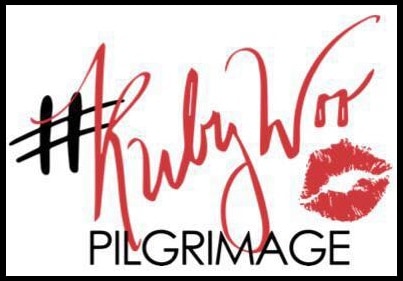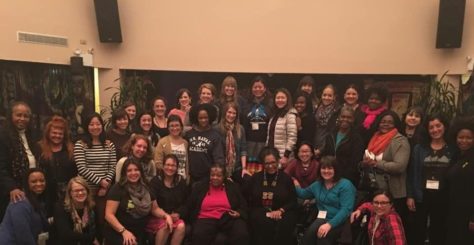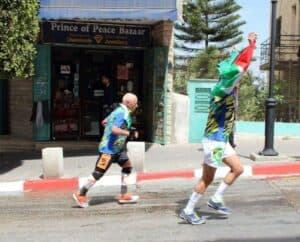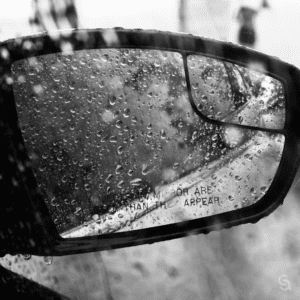 “Where do you find the courage?” one woman asked from the front row. She posed the question to Ruby Sales, a historic leader in the Civil Rights movement. Ruby Sales began her work for the movement in the South, in a time when it was dangerous for her even to buy a soda from a whites-only convenience store. She still carries anxiety from the memory of an enraged white construction worker shooting at her as she made such a purchase, when she was just 17. Ruby survived because one of her allies, a young Episcopal seminarian, took a bullet for her—a bullet that killed him instantly. She was the right person to ask about courage.
“Where do you find the courage?” one woman asked from the front row. She posed the question to Ruby Sales, a historic leader in the Civil Rights movement. Ruby Sales began her work for the movement in the South, in a time when it was dangerous for her even to buy a soda from a whites-only convenience store. She still carries anxiety from the memory of an enraged white construction worker shooting at her as she made such a purchase, when she was just 17. Ruby survived because one of her allies, a young Episcopal seminarian, took a bullet for her—a bullet that killed him instantly. She was the right person to ask about courage.
That night, under the roof of the National Black Theatre in Harlem, Ruby sat and shared her story. She told us to mine our own histories to find our courage. And so, from that time with Ruby, I took her words, and held them, turned them over, and held them, and turned them over throughout the rest of the trip.
The RubyWoo Pilgrimage (named and inspired by a lipstick that is known to look good on many skin types, and inspired by a social media conversation) started in Seneca Falls, NY and followed a four-day path that took us through New York, Philadelphia, Baltimore, and DC. Under the leadership of Lisa Sharon Harper and Micky ScottBey Jones, we took a journey that stopped at significant places in both the women’s suffragist movement and the anti-slavery movement. We dipped into stories of immigration, looking at the experiences of Latinx mothers, the Chinatown experience, the incarceration of the Japanese Americans in WWII, and the early Irish and Jewish immigrant tenement experiences. We were 34 women, of various shades of Christian faith and racial/ethnic heritages, all committed to journeying on the bus together.
The justice journey is more of a posture than a destination.
As a woman of faith, it has always struck me how God wove his story within the stories of our people (Acts 17). And as we journeyed, and heard each other’s stories, I was listening. Listening for the pointers to God. I believe that God puts pointers, little signposts, into the stories of other people so that they might seek and find God, though he isn’t far from from any of us. But I also encountered, within the stories, the places where people of God failed to point others to God. And I saw and heard the legacy of those moments.

The trip was good but bumpy. There was laughing, and there was singing. There was the loopiness that comes from too much time stuck on a bus. But there were also times that were rough. We were sideswiped by a truck, in New York City. We heard the pain of forgotten stories, and glossed-over moments. And we knew that there were the stories that lingered in the shadows, just adjacent to the ones we were discussing: The experience of the Italian immigrants, unspoken even as we looked at the Irish experience. The genocide of the First Nations people, even as we looked at slavery. The silence of the South East Asian community, even as we looked at Chinatown. It was humbling.
Both the moments of dissonance and the moments of hope clarified something for me. The justice journey is more of a posture than a destination. It’s not about knowing the stories, or using the right words, or being on the “correct side” of an issue. It’s a passionate yearning, a yearning and an unyielding hope that things can be different.
I saw this yearning in the work of the suffragettes, many of whom never got the chance to vote, and who watched as their hope was negotiated and de-prioritized. The justice journey is about this kind of courageous hope, fueled by faith in God. Like Harriet Tubman—a woman who heard from God, and worked for the freedom of those she loved, and also those she did not know.
Finding courage to stay on a journey with an ambiguous destination is hard.
And the justice journey is meant to be done in a community of people. I was surprised, time and time again, to discover different people who were in community around Harriet Tubman—the communities of faith that fostered the learning and language of the movement, but also provided the practical essentials of life, shelter, food, friendship, and care. The way the Quakers stepped alongside, and created a space that birthed so many important voices.
Finding courage to stay on a journey with an ambiguous destination is hard. It’s vulnerable and sometimes fickle. And I think that’s what I appreciated most about the RubyWoo Pilgrimage. We were given the time to look behind the glossy, made-for-museum stories and get to some of the heartbreak that co-existed alongside the stories. Harriet Tubman’s husband abandoned her and started a new family. The anti-slavery movement and the suffragist movement split over strategy. This is the kind of stuff that I recognize today. And in going deep into those stories, I find renewed strength to stay on this justice journey.
Nikki Toyama-Szeto is Executive Director of Christians for Social Action.


